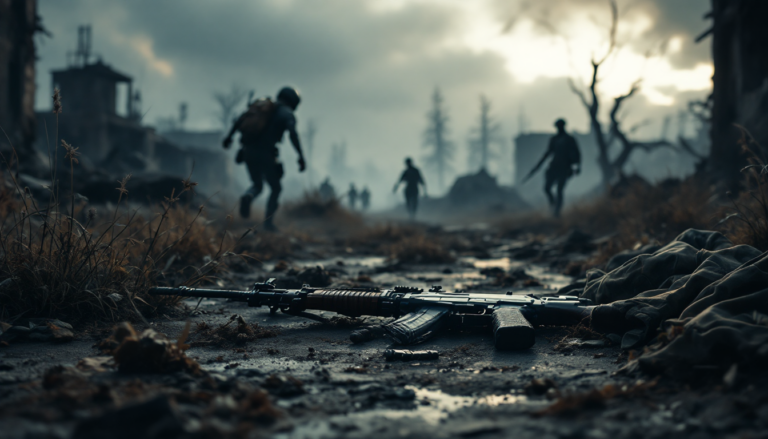Argomenti trattati
PUBG: Battlegrounds, originally known as PlayerUnknown’s Battlegrounds, has made quite a splash in the gaming world since its launch in 2017. Developed by Krafton and its PUBG Studios, this game has not only redefined multiplayer gaming but has also played a pivotal role in popularizing the battle royale genre. Inspired by Brendan Greene’s earlier mods and the cult classic film Battle Royale, PUBG has transformed into a standalone experience where players face off in high-stakes survival scenarios. So, what exactly has fueled PUBG’s remarkable journey? Let’s dive into its gameplay mechanics, market influence, and the elements behind its incredible success.
The Market Landscape and Historical Context
Since its launch, PUBG has experienced phenomenal growth, quickly becoming the best-selling game on both PC and Xbox One. Released in early access on Windows back in March 2017, it attracted a massive player base that catapulted it to the forefront of the gaming scene. By December of that same year, it celebrated a full release, followed by successful rollouts across various platforms, including consoles and mobile devices. Interestingly, the game’s business model shifted from relying solely on sales revenue to adopting a free-to-play format in January 2022, which has only widened its audience.
Industry reports reveal that by Q3 2022, PUBG had generated over $13 billion in global revenue, showcasing not just its financial triumph but also its cultural significance. With over 75 million copies sold across all platforms, it stands as one of the highest-grossing video games of all time. But what keeps players coming back? Its ability to adapt and evolve in response to player preferences has been a key factor in maintaining its popularity.
Gameplay Mechanics and the Player Experience
At its heart, PUBG delivers a unique combination of tactical shooting and survival gameplay, where up to 100 players compete to outlast each other on various maps. Each match kicks off with players parachuting onto an island, scavenging for weapons, armor, and supplies—all while dodging other players. The game mechanics encourage strategic play, with a constantly shrinking safe area that forces confrontations and elevates the tension. Isn’t that what every gamer craves?
Players can choose from different game modes, including solo, duo, and squad play, tailoring their experience to fit their style. The addition of random loot drops and dynamic environmental elements enhances replayability, ensuring that no two matches ever feel the same. Whether you prefer a first-person or third-person perspective, each offers its own set of advantages and challenges.
With ongoing updates and seasonal content, PUBG has kept its community engaged by regularly introducing new features, maps, and gameplay modes. It’s this commitment to player feedback and adaptability that has cemented PUBG’s reputation as a cornerstone of the battle royale genre.
Trends and Investment Opportunities
As the gaming industry evolves, PUBG’s success has paved the way for investments in the esports sector. Competitive play has surged since the game’s inception, with numerous tournaments and events attracting huge viewership and lucrative sponsorship deals. PUBG Corporation’s initiatives to promote the game as a leading esport further emphasize its growth potential in this arena.
For those considering investment opportunities, it’s essential to keep an eye on the trends surrounding PUBG and the broader battle royale scene. The game’s innovative mechanics, strong community engagement, and adaptability position it favorably for future success. Plus, the rise of mobile gaming has broadened PUBG’s audience, driving additional revenue through microtransactions. As the gaming landscape shifts, how could these factors influence your investment strategy?
Future Projections and the Evolving Landscape
Looking ahead, PUBG’s future seems bright. With continuous development of new content and features, the game is well-positioned to attract new players while retaining its loyal fan base. The shift to a free-to-play model has already had positive effects on player engagement, with a notable uptick in active users across all platforms.
Moreover, as the gaming industry embraces emerging technologies like virtual reality and augmented reality, PUBG’s developers are likely to explore innovative ways to elevate the gameplay experience. The ongoing growth of esports and online streaming will also play a critical role in shaping the game’s future. Isn’t it exciting to think about how these developments could transform the gaming experience?
In conclusion, PUBG: Battlegrounds has firmly established itself as a cornerstone of modern gaming, setting a benchmark for battle royale games and influencing countless titles that have followed. As it continues to adapt and thrive, the game’s legacy is sure to endure in the annals of gaming history. What will the next chapter look like for this iconic title?

